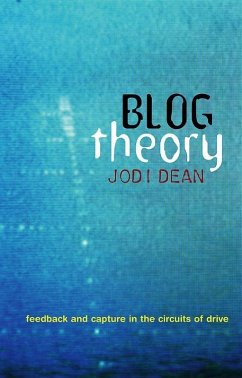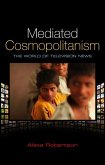Blog Theory offers a critical theory of contemporary media. Furthering her account of communicative capitalism, Jodi Dean explores the ways new media practices like blogging and texting capture their users in intensive networks of enjoyment, production, and surveillance. Her wide-ranging and theoretically rich analysis extends from her personal experiences as a blogger, through media histories, to newly emerging social network platforms and applications. Set against the background of the economic crisis wrought by neoliberalism, the book engages with recent work in contemporary media theory as well as with thinkers such as Giorgio Agamben, Jean Baudrillard, Guy Debord, Jacques Lacan, and Slavoj ?i?ek. Through these engagements, Dean defends the provocative thesis that reflexivity in complex networks is best understood via the psychoanalytic notion of the drives. She contends, moreover, that reading networks in terms of the drives enables us to grasp their real, human dimension, that is, the feelings and affects that embed us in the system. In remarkably clear and lucid prose, Dean links seemingly trivial and transitory updates from the new mass culture of the internet to more fundamental changes in subjectivity and politics. Everyday communicative exchangesÑfrom blog posts to text messagesÑhave widespread effects, effects that not only undermine capacities for democracy but also entrap us in circuits of domination.
Dieser Download kann aus rechtlichen Gründen nur mit Rechnungsadresse in A, B, BG, CY, CZ, D, DK, EW, E, FIN, F, GR, HR, H, IRL, I, LT, L, LR, M, NL, PL, P, R, S, SLO, SK ausgeliefert werden.









